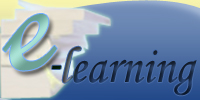The question on Consumer Education and Job opportunities for a Clothing and Textiles
graduate was not very well answered. The Section on stain removal was also not properly
answered.
The required answers to the questions are as follows:
(a) Explanation of the term 'consumer'
A consumer is a person who buys and uses clothing items and services.
(b )(i) Job opportunities for a Clothing and Textiles graduate
- Dressmaking
- Retailing
- Factory work
- Textile Designer/decorator
- Communication/Journalism
- Teaching
- Laundry and Dry-cleaning service
- Extension service
- Make-up Artist
- Interior decorator
- Fabric craftsman
- Upholstery-making
- Modelling
- Pattern making
- Fashion designing
- Beadmaking
- Weaving
- Embroidering
(ii) Short notes on the following:
Dressmaking: With skills in designing and sewing, one can be employed in fashion houses to design and sew or supervise sewing for consumers. Can run his/her own dressmaking business.
(iii) Factorv work: Can work as a quality control specialist making sure clothing and
textiles items meet certain standards.
(iv)
Communication/Journalism: Can be a free-lance journalist or be employed by a
media house writing articles about how to select, use and care for fabrics or how to
dress appropriately for different occasions.
(v)
Teaching: Can be a Clothing and Textiles teacher, teaching the production and
properties of various fibres and their suitability for various end uses. May teach
clothing design and construction of garments.
(vi)
Laundry and Dry-cleaning Service: Can set up a home laundry or dry-cleaning
plant to cater for those who may not be able to launder their own clothes.
(vii)
Embroidering:using embroidery stitches and threads/yam to make decorations on
fabrics by hand or machine.
(viii)
Weaving: Using warp and weft threads (two set of thread) by interlacing either by
hand or machine.
(ix)
Upholstery making: Using fabrics, wood, foam and trimmings to produce furniture.
(x)
Extension Service: May work with Ministry of Social Welfare as an extension
officer working with families, educating them about the selection, use and care of
fabrics, how to use clothe to make useful articles out of scraps.
(xi)
Make-up Artist: Can groom news readers and actors and actresses.
(xii)
Interior Decoration: Can decorate homes and offices using soft furnishing.
(xiii)
Modelling: is the art of weaving various types of garment to show which styles are
current.
(xiv)
Fabric Craftsman: Can decorate fabric crafts for sale e.g. hair accessories,
decorative pieces for home improvement, etc.
(xv)
Retailing: Can be a buyer/merchandiser who buys and sells clothing and textiles items can be employed by a departmental store as a salesperson advising customers
on styles for fabrics, choice of suitable colours and accessories for the wearer and for
different occasions.
(xvi)
Textile Designer: A clothing and textiles graduate who is artistic and has flair for
colours and designing can own his/her own business in fabric production e.g.
(xvii)
Pattern Making: This is making out styles on paper to use in cutting out various
garments in different sizes.
(xviii)
Fashion Designing: Fabric decorator Designing. Can predict and forecast styles of
Garment, sketch and illustrate items. May also sew and produce garments.
(xix)
Upholstery Making: Producing furniture using wood, fabric, foam and trimmings.
(xx)
Weaving: Using warp and weft yams or thread (two sets of thread) by interlacing to
produce fabrics by hand or machine.
(xxi)
Bead Making: Using materials such as seeds, stones, shells, sequins etc to produce
accessories.
(xxii)
Fabric Decorator: Using the elements of design to beautify fabrics through colours,
applique, embroidery, etc. tie and dye, batik printing.
c.
REMOVAL OF PERSPIRATION STAIN FROM A WHITE SHIRT
(1) Sponge with solution of vinegar and water (1 tablespoon to 2 tumblers) or
solution of ammonia and water (1 part ammonia to 9 parts water)
(2) If odour persists soak garment in a solution of borax and water (1 tablespoon
to 2 glasses)
(3) Wash and rinse well
OR
(1) Soak in cold water
(2) Wash in warm water
(3) Rinse thoroughly in clean water
(4) Bleach if necessary
(5) Rinse and dry in the sun.
-



